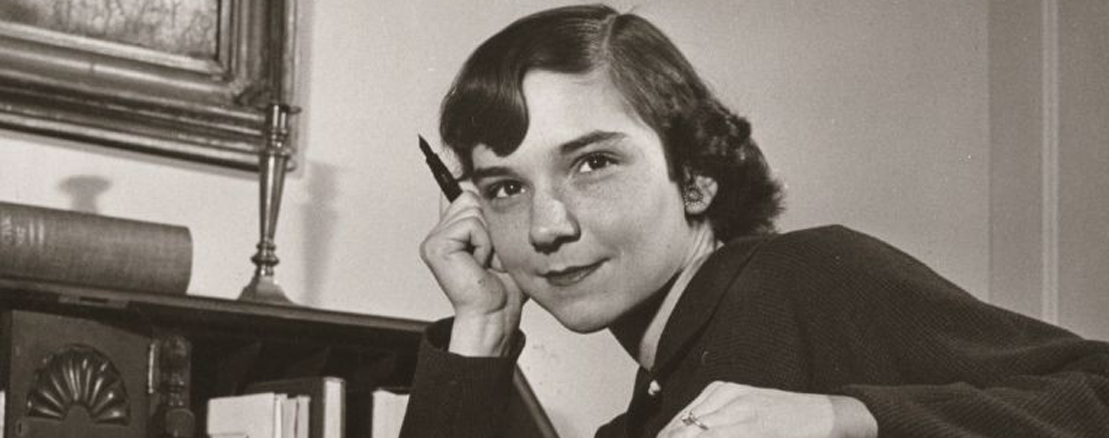
During A Celebration of Women’s Poetry, the first open-mic reading in the short history of the Conversations @ Efroymson series, the forum matched the content. As much as the words off the page were empowering, so too was the sight of tenured professors trading notes with undergrads about which poetry collection to pick up next.
Taylor Meador, a senior English literature major, was first to the podium to share “Cat in an Empty Apartment” by the famous Polish poet Wislawa Szymborska. Like the abandoned feline at the poem’s center, Szymborska’s verses step softly toward the subtle revenge that brings her work to a cathartic close:
Just wait till he turns up,
just let him show his face.
Will he ever get a lesson
on what not to do to a cat.
Sidle toward him
as if unwilling
and ever so slow
on visibly offended paws,
and no leaps or squeals at least to start.
Dr. Terri Carney, the chair of Butler’s Modern Languages department, followed with “
Hombres Necios,” a 17th century redondilla by the Spanish nun Sor Juana Ines de la Cruz that serves as a scathing, yet eloquent indictment of male chauvinism. MFA graduate Deanna Morris and MFA candidate Jo Mader kept the momentum going with selections from two of the most influential poets of the 21st century, Elizabeth Bishop and Mary Oliver. While Bishop’s “
Filling Station” muses on life’s little mysteries, Oliver’s “
In Blackwater Woods” tries to wrap its arms around death’s immensity, which proved particularly moving to Mader, who had attended a funeral only a few days before the event and took solace in the sentiment that:
you must be able
to do three things:
to love what is mortal;
to hold itagainst your bones knowing
your own life depends on it;
and, when the time comes to let it go,
to let it go.
Another striking selection was “
Diving into the Wreck” by Adrienne Rich, which explores the depths of gender identity through a series of murky images and metaphors. Gender, Women, and Sexuality Studies Professor Brooke Beloso discussed the revelatory nature of Rich’s work and how it opened her eyes to a bold new wave of liberating literature, explaining both the personal and cultural significance of lines like the following:
the thing I came for:
the wreck and not the story of the wreck
the thing itself and not the myth
the drowned face always staring
toward the sun
the evidence of damage
worn by salt and sway into this threadbare beauty
the ribs of the disaster
curving their assertion
among the tentative haunters.
Other readers included Butler MFA poetry professor Alessandra Lynch (who read “
The Moon and the Yew Tree” by Sylvia Plath), junior English writing major Paige Frisone (“
Good Girl” by Molly Peacock), MFA director Hilene Flanzbaum (“
The Hardness Scale” by Joyce Peseroff), senior English literature major Katee Rice (“
Calypso” by Olga Broumas), MFA candidate Allyson Horton (Mari Evans “
Where Have You Gone?“), MFA candidate Susan Scott (“
Language of the Brag” by Sharon Olds), and English professor and MFA graduate Chris Speckman (“
Mock Orange” by Louise Glück).
